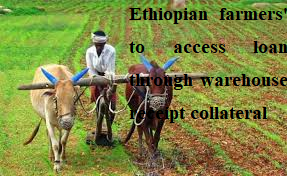
Consumers, officers belong to government or non-government organizations, merchants, agents and others are no more given hard time in due course of fostering marketing and running swift business transaction as banks, micro finance institutions and other related finance entities are well amalgamated and create a huge financial hub. This colossal entity has employed ATM, POS, mobile, internet/web as well as other state-of-the-art machines to advance transaction.
This huge financial hub termed as EthSwitch, has envisaged for making payments simple and affordable thereby being the best-in-class Payment Network in Africa by 2035 with core values including integrity, security, innovative, customer focused, enabling digital environment etc.
At an event organized to coach media professionals about business reporting, Yilebes Addis, EthSwitch Chief Executive Officer (CEO) said EthSwitch was established as a Share Company owned by all Banks, be they are Public and private ones.
In this contemporary world where digital operation is the most common one, the world over has been intertwined more than ever before. Yes, the digital era highly attracts digital technologies like computers, the internet, mobile phones, and they have been widely used and adopted thereby changing the social, economic and even political trajectories in many countries of the globe is prettily gaining momentum.
Ethiopia is not exceptional in this regard. Basically, the digital era refers to a time where information is easily accessible online without limitations of space and time, enabling advanced learning innovations utilizing technology. Besides, digital era in Ethiopia has comprised a number of components and fervently entertained to the current period characterized by digital technologies like EthSwitch.
Congratulations Ethiopia! The scheme designed by the National Bank of Ethiopia (NBE), EthSwitch, is seriously targeting at providing citizens with core services like interoperability, domestic scheme, national Payment Gateway, Shared Service and Platform and clearing and Settlement and Reconciliation thereby enabling users run at ease activities such as bill Payment, remittances, tax Payment, e-Commerce, ticket Payment, bulk Payment, merchant Payment through QR, among others. Besides, the state of the art appliances including ATM Interoperability, Ethio-Pay Card Scheme and the like are being widely used.
As to Yilebes, EthSwitch was established mainly to provide simple, affordable, secure, and efficient e-payment infrastructure services to retail payment service providers, and through them, to end users in Ethiopia by deploying state-of-the-art technology along with highly skilled and motivated professionals. The underlying mandate of the company is to contribute to the modernization of the national payment systems and the attainment of financial inclusion in the country.
He said, “EthSwitch, the National Switch, is owned by the National Bank of Ethiopia, all banks either Private or Public, Microfinance Institutions (MFIs), Payment Instrument Issuers (PIIs), and Payment Services Providers (PSOs). It is mandated to Create Interoperability between financial institutions, implement a Domestic Payment Scheme, provide a National Payment Gateway, serve as Central Interconnectivity for Clearing and Settlement, and provide Shared Platform/Infrastructure services.”
The CEO further elucidated that as a share company establishes with equal investment by all private and public banks in Ethiopia in 2011, EthSwitch is open to participation for all financial institutions, payment system operators and Payment Instrument Issuers licensed by the NBE. It is a business company that operates with no profit maximization, but cost recovery and re-investment motives.
“Governed by an established corporate governance structure, where the Shareholders’ General Assembly is the supreme governing body, and the Board of Directors, EthSwitch is comprised elected members who oversee the overall operation of the company which will be led by the CEO, that manage the day-to-day activities of the Management team,” he explained.
As to him, owners and operators of the unifying e-payment platform for Ethiopia (EthioPay) which consists of a national e-payment switch, clearing and settlement system is well applied.
In today’s rapidly digitizing world, Ethiopia’s financial landscape is undergoing a monumental shift, propelled by the transformative power of digital banking. Advanced technologies and widespread internet penetration have ushered in a remarkable evolution in the banking sector, completely transforming the delivery and consumption of financial services. The current state of digital banking in the country not only reflects the substantial progress made thus far but also highlights the immense potential that lies ahead.
Digital-banking ecosystem in Ethiopia has experienced a remarkable surge, fuelled by the government’s ambitious Digital Ethiopia initiative and the increasing prevalence of the technological revolution has empowered millions of citizens, spanning from urban hubs to rural areas, by granting them convenient, secure and efficient access to financial services.
Popular digital-banking services, such as mobile applications, online payments and digital wallets, have gained widespread adoption—fundamentally reshaping how individuals manage their finances, conduct transactions and interact with financial institutions. One of the key advantages of digital banking lies in its ability to bridge the gap between the urban populace and the unbanked or under banked, especially in rural areas.
Digital banking has enabled individuals, regardless of their geographical locations and strata, to access essential banking services conveniently. With a Smartphone and internet connection, individuals can open bank accounts, make transactions, check balances and even avail themselves of credit facilities.
Digital wallets and mobile payment platforms have gained immense popularity, allowing individuals to make transactions, pay bills and shop online without physical currency. This has particularly benefited the unbanked population, who previously relied heavily on cash transactions.
In the context of financial inclusion, digital banking also offers opportunities for small and medium-sized enterprises (SMEs) and entrepreneurs. Digital lending platforms, enabled by digital-banking infrastructure, provide easier access to credit for these businesses, which often face challenges obtaining loans through traditional channels.
The digital public infrastructure in Ethiopia has been a game-changer, enhancing accessibility and inclusivity in financial services. Also, collaboration between banks and ecosystem players has become essential in the digital era to deliver holistic financial solutions.
However, infrastructure limitations remain a barrier, particularly in rural and remote areas, where reliable internet connectivity and power supply are limited. This hampers the seamless delivery of digital-banking services and impedes access for a large population segment.
Security concerns arise as digital transactions increase in volume. Safeguarding customer data and ensuring secure transactions are paramount to maintaining trust in digital-banking platforms. The future of digital banking in the country holds great promise, with several emerging trends reshaping the industry and driving its growth. These trends are set to transform how banking services are delivered and experienced by customers.
Open banking, for instance, is gaining traction in Ethiopia, paving the way for a more collaborative and customer-centric banking landscape. By allowing customers to share their financial data with authorized third-party providers securely, open banking fosters innovation and competition.
The potential of digital banking in Ethiopia presents an exciting and promising future. To fully harness these emerging trends, addressing regulatory and security challenges is paramount. Establishing robust frameworks to safeguard customer interests, ensure data privacy and security, and maintain transaction integrity is crucial.
The journey ahead is exciting, and with the right vision and collaboration, digital banking will play a pivotal role in shaping Ethiopia’s financial future. No more looking over manuscript statements or withdrawal slips, and hard currency trends are not used any longer. Yes, thanks to the advent of digital banking, individuals, companies and/organizations can now easily make transactions, check their account balance or even make transfers just with a single click of a button on their Smartphone, desk top or any other digital device through digital banking.
Digital banking represents the seamless integration of banking services into the digital world, enabling users to manage their finances through the internet or mobile devices. This modern approach to banking is reshaping the financial landscape, offering a blend of convenience, speed, and accessibility previously unattainable through traditional banking methods. At its core, digital banking encompasses all the transactions, savings, and investment activities that once required a visit to a bank branch, now accessible via cell phone or computers.
Digital banking is built on several key components that together create a robust and versatile financial ecosystem. Online banking websites and mobile banking apps form the backbone of digital banking, offering users the ability to perform transactions, check balances, and manage their accounts from anywhere. The shift towards digital banking brings numerous advantages over traditional banking models.
Transitioning to digital banking begins with selecting a digital bank or a traditional bank that offers comprehensive online services. Mobile banking apps now offer a comprehensive suite of features, from basic account management and transaction capabilities to more sophisticated services like mobile check deposits, real-time notifications, and personalized financial insights. The future of financial services is set to transcend traditional banking boundaries, with the integration of banking services into non-financial platforms emerging as a key trend.
As digital banking continues to evolve, regulators are faced with the task of ensuring a secure and stable financial environment while fostering innovation. Digital banking refers to the use of digital technologies to deliver banking services and manage financial transactions over the internet.
Reflecting on the digital banking revolution, we’ve explored its evolution from traditional methods to the forefront of financial technology, highlighting the significant benefits, including convenience, efficiency, and enhanced customer experiences. The digitization of a bank involves developing new channels and products, adapting to technological infrastructure, and changing organizations to strategically position themselves in the digital environment. In developing countries, banks have embarked on this process before and are now at the stage of meeting new customer needs and can compete with further technical and financial service providers.
BY MENGESHA AMARE
THE ETHIOPIAN HERALD FRIDAY 9 AUGUST 2024





